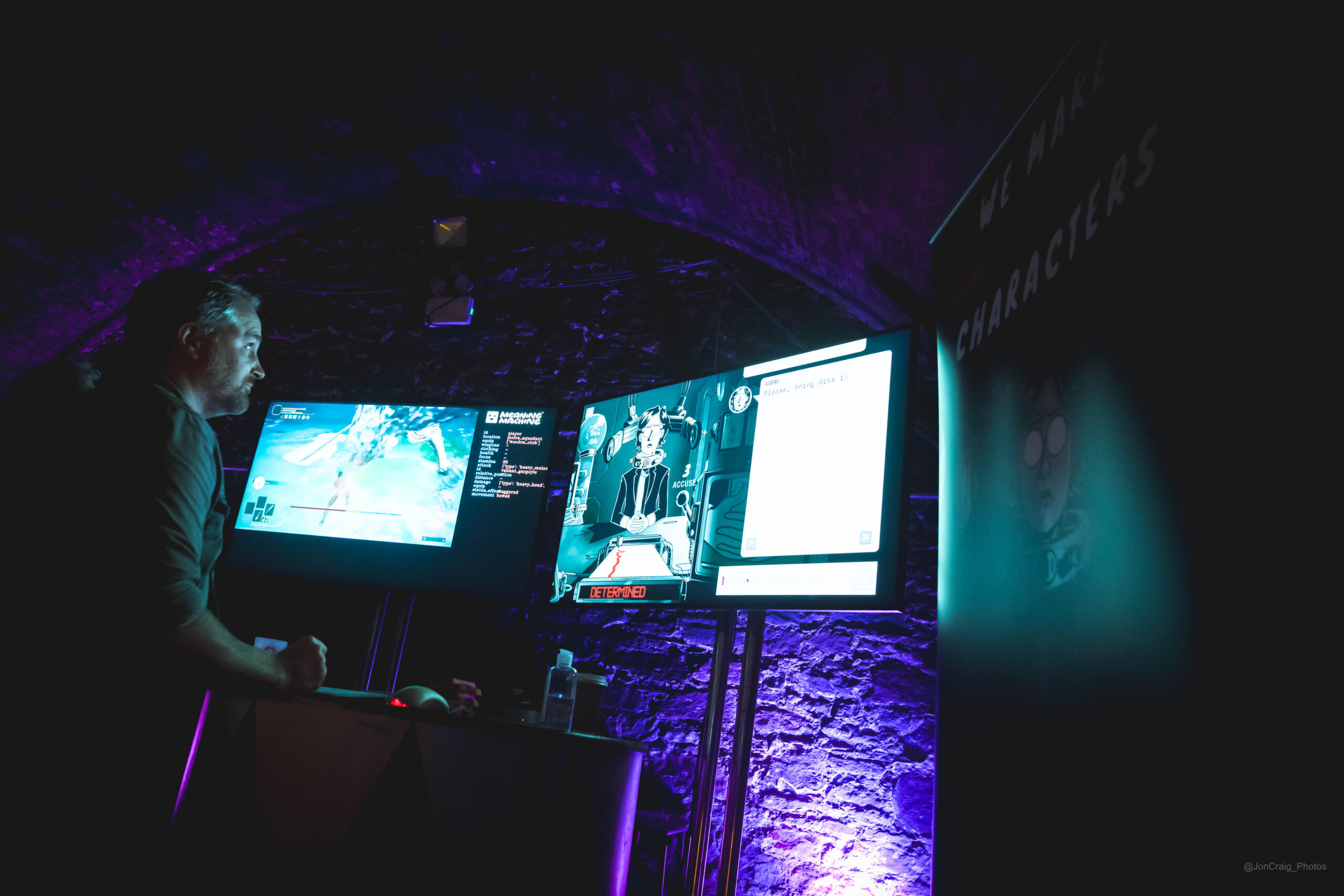By Amy Spencer and Kate Pullinger
In this time of rapid technological advancement, the intersection of artificial intelligence and creative practices has become a focal point of academic research within MyWorld. Recognising the importance of this fast-evolving landscape, Bath Spa University’s Centre for Cultural and Creative Industries (CCCI) and the Narrative and Emerging Technologies (NET) Lab recently curated the Writing with Technologies webinar series. This four-part series offered an exploration of AI’s influence across writing, publishing, pedagogy and performance, offering insights for researchers and practitioners.
The series began with a thought-provoking session on reimagining writing practices through AI. Rianna Dearden from Charisma Entertainment shed light on the application of AI tools in game development workflows, illustrating the potential for AI to enhance interactive storytelling. Reham Hosny of Minia University in Egypt expanded on this theme, examining AI’s role in amplifying socio-political narratives and its potential for facilitating change. The session was further enriched by Joanna Zylinska from King’s College London, who offered valuable insights into AI’s impact on screenwriting and film production processes, highlighting the potential of AI in visual storytelling.
The second webinar delved into the effects of AI on the publishing industry, featuring talks by Nicola Solomon from the Society of Authors and Sara Lloyd of Pan Macmillan. They both critically examined the challenges and opportunities presented by AI in publishing, touching on crucial topics such as AI’s role in book acquisition, editing processes, marketing and the evolving landscape of authors’ rights. This session underscored the need for adaptive strategies in response to AI’s disruption of traditional publishing models.
The series then shifted focus to education to explore the integration of AI tools in creative writing pedagogy. Speakers Lillian-Yvonne Bertram from the University of Massachusetts, David Devanny from Falmouth University and Mark Marino from the University of Southern California shared innovative approaches to incorporating AI in creative writing instruction. Discussions centred on the pedagogical applications of developing ‘small language models’, the concept of AI as a collaborative writing partner, and students’ perceptions of these emerging technologies. This session provided valuable insights into the potential for AI to revolutionise creative writing education and opened up new avenues for pedagogical research.
The final webinar examined AI’s potential in live performance, featuring talks by Piotr Mirowski from Google DeepMind and Goldsmiths, University of London and Sharon Clark from UWE and Raucous. Their cutting-edge research on AI-assisted script generation and the development of interactive characters highlighted the exciting possibilities at the intersection of AI, performance arts and audience engagement. This webinar demonstrated the potential for AI to not only assist in content creation but also to alter the nature of performance and audience interaction.
Throughout the series, several key themes emerged that have significant implications for creative technology research and practice. The importance of interdisciplinary approaches was evident, demonstrating the need for cross-disciplinary collaboration in understanding and harnessing AI’s potential across creative fields. Ethical considerations were a recurring topic, highlighting the need for ongoing discourse surrounding AI’s role in creative processes. The exploration of AI in educational contexts provided a foundation for developing new teaching methodologies in creative writing, while insights from publishing professionals underscored the need for adaptive strategies in response to AI’s disruption of traditional industry models.
Perhaps most importantly, the webinar series pointed to numerous avenues for future research. These include examining the long-term impacts of AI on creative processes, exploring the copyright implications of AI-generated content and investigating the evolution of human-AI collaboration in the creative industries.
